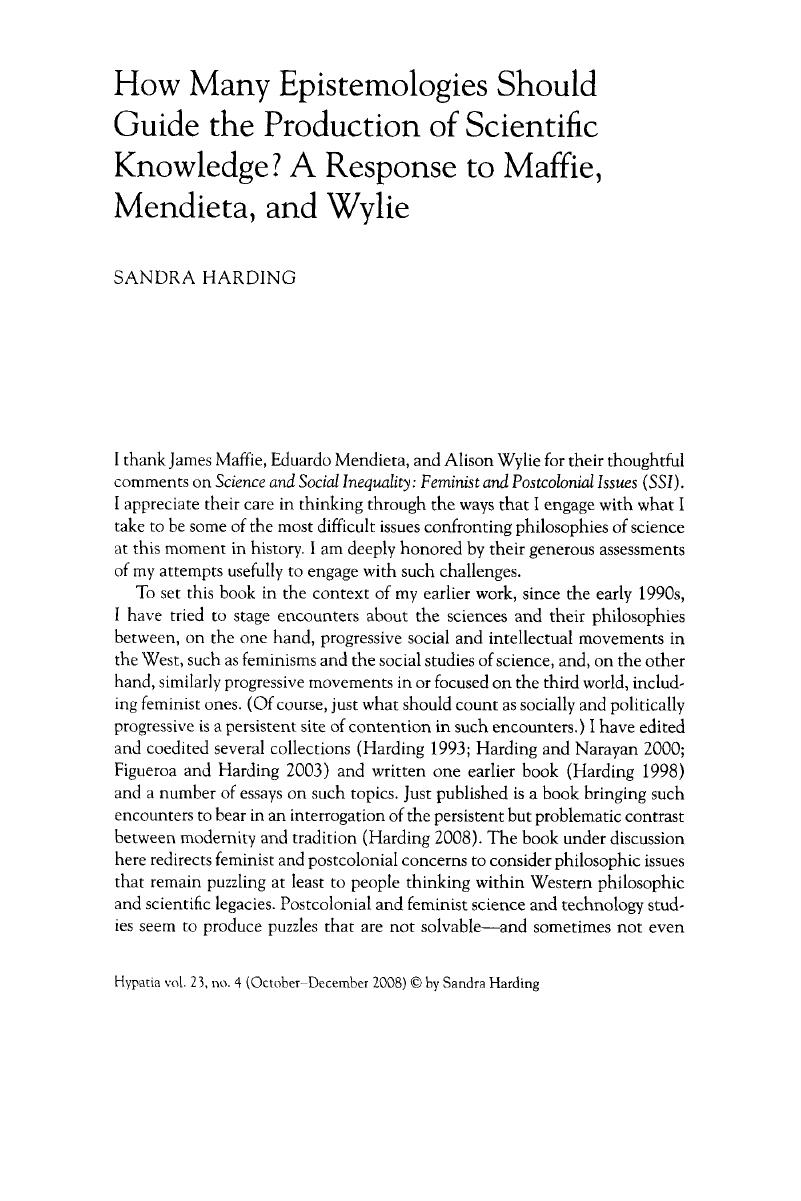Crossref Citations
This article has been cited by the following publications. This list is generated based on data provided by Crossref.
Hicks, Manda V.
2011.
Making My Narrative Mine: Unconventional Articulations of a Female Soldier.
Qualitative Inquiry,
Vol. 17,
Issue. 5,
p.
461.
Burns, David Patrick
and
Norris, Stephen P.
2012.
Activist Environmental Education and Moral Philosophy.
Canadian Journal of Science, Mathematics and Technology Education,
Vol. 12,
Issue. 4,
p.
380.
Handa, Neera
2018.
Education for Sustainability through Internationalisation.
p.
1.
Varghese, Jeji
and
Crawford, Stephen S.
2021.
A cultural framework for Indigenous, Local, and Science knowledge systems in ecology and natural resource management.
Ecological Monographs,
Vol. 91,
Issue. 1,





